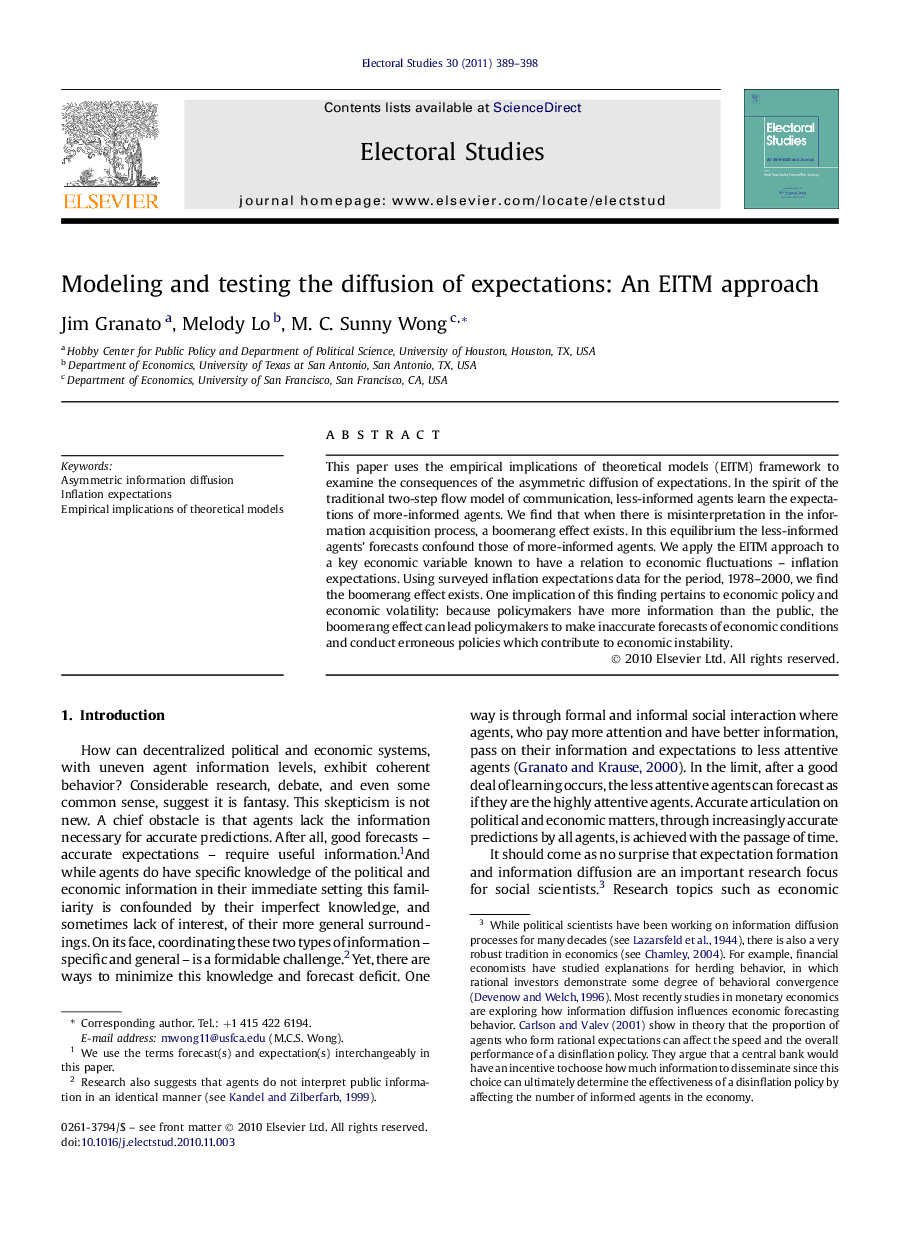| Article ID | Journal | Published Year | Pages | File Type |
|---|---|---|---|---|
| 1051922 | Electoral Studies | 2011 | 10 Pages |
This paper uses the empirical implications of theoretical models (EITM) framework to examine the consequences of the asymmetric diffusion of expectations. In the spirit of the traditional two-step flow model of communication, less-informed agents learn the expectations of more-informed agents. We find that when there is misinterpretation in the information acquisition process, a boomerang effect exists. In this equilibrium the less-informed agents’ forecasts confound those of more-informed agents. We apply the EITM approach to a key economic variable known to have a relation to economic fluctuations – inflation expectations. Using surveyed inflation expectations data for the period, 1978–2000, we find the boomerang effect exists. One implication of this finding pertains to economic policy and economic volatility: because policymakers have more information than the public, the boomerang effect can lead policymakers to make inaccurate forecasts of economic conditions and conduct erroneous policies which contribute to economic instability.
► The empirical implications of theoretical models (EITM) framework. ► Theoretical and empirical study of the asymmetric diffusion of expectations. ► The existence of a boomerang effect due to error in the transmission of information.
